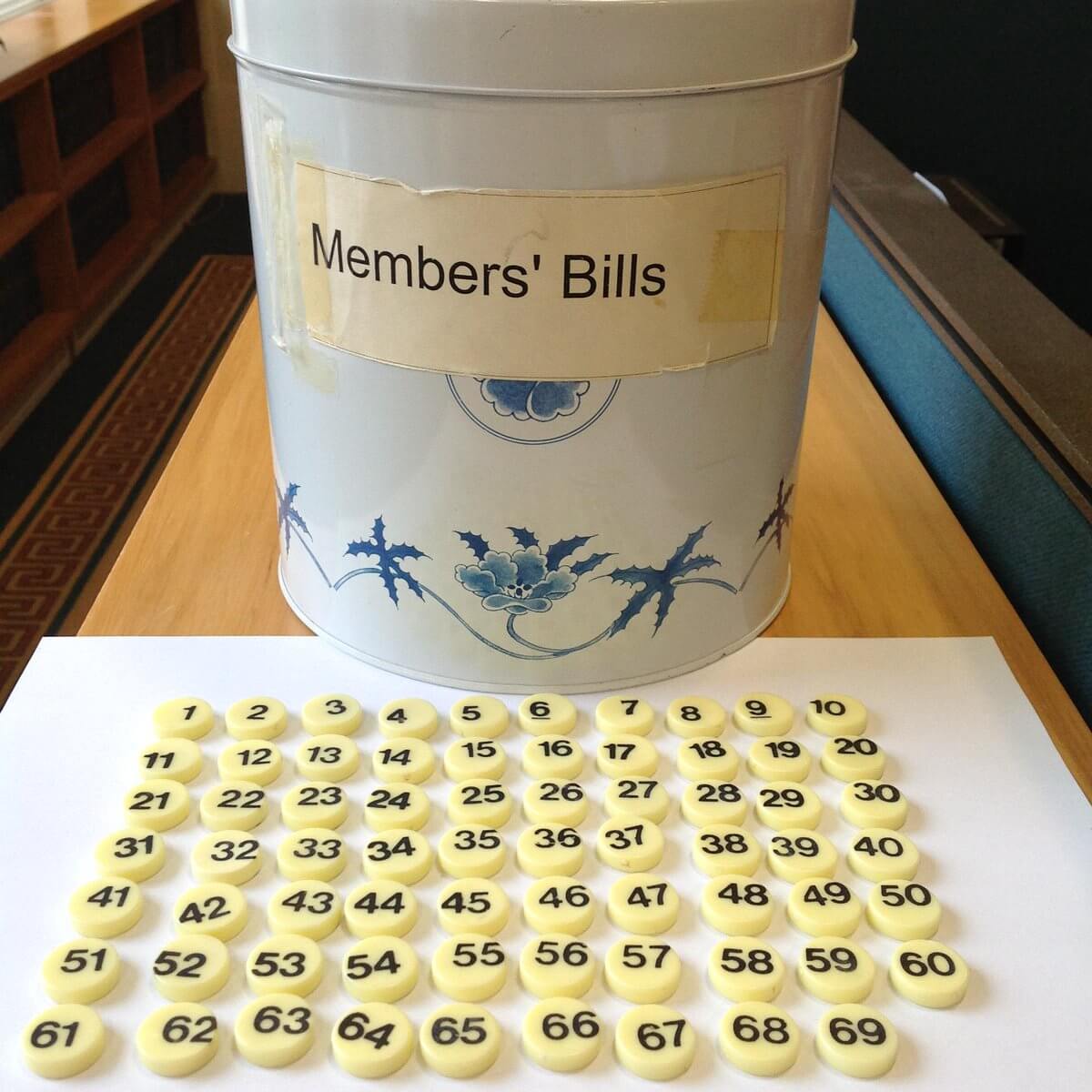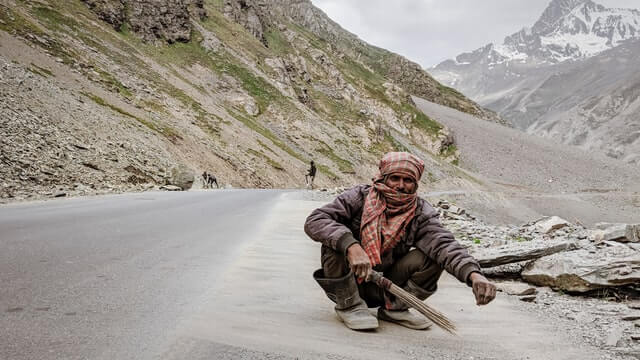This Blog is written by Asmita Arora from Guru Nanak Dev University, Amritsar. Edited by Prakriti Dadsena.
In the world of conflicts and disputes, there is an urgent and necessary requirement for forming contracts between two parties to avoid future conflicts. Also, we need to cease the involvement of third parties in the two parties’ contracts otherwise it leads to the same situation of distress between the parties. Agreements or treaties just not the concept of individuals but it is the concept of nations too.
This Blog is written by Ashutosh Agarwal from National Law University, Delhi. Edited by Prakriti Dadsena.
Nuclear weapons in their current capabilities carry immense destruction power. In their first use against Japan by the United States, the ill effects of a nuclear-based attack weapon were brought in front of the whole world. The debate which was then initiated revolves around the legality of possessing such powerful destructive weapons and the lack of robust legal infrastructure to deal with its regulation.
This Blog is written by Piyush Gupta from CPJ College of Higher Studies & School of Law, Delhi. Edited by Uroosa Naireen.
The issue regarding the inclusion of political parties within the domain of the Right to Information Act, 2005 has been a long-established one where the political parties have snubbed this move on the ground that they are not public authorities as per the RTI Act, 2005.
This Blog is written by Paryas Khosla from Vivekananda Institute of Professional Studies (VIPS), Delhi. Edited by Ritika Sharma.
Uber Technologies, Inc. is an American based company which involves multinational ride-hailing works, it is known as ‘Uber’, and this name is very common. This company is involved in peer to peer ride-sharing services to individuals, this company is spread among many countries; it emerges as the main company for riding and delivery services.
This Blog is written by Aadish Jain from Symbiosis Law School, Noida. Edited by Prakriti Dadsena.
Honour killing, frequently, the homicide of a woman or young lady or a girl by male relatives. The executioners legitimize their actions by guaranteeing that the casualty has brought shame upon the family’s name, eminence, and prestige.
This Blog is written by Sarthak Verma from Symbiosis Law School, Noida. Edited by Ritika Sharma.
Adverse possession and Permissive possession hold a great significance mainly in the property law, where on one side some rights are granted to the possessor or the owner and on the other side some kind of limitation is put over them, where the duration for lamination and having legal action against the possessor is 12 years.
This Blog is written by Aastha Sarda from ILS Law College, Pune. Edited by Ritika Sharma.
The chairman of the First Law Commission of British India (established under the Charter Act of 1833), Lord Macaulay, was of the opinion that the marital infidelity or the acts of adultery between the parties are private matters which do not do any public harm and therefore the law should not interfere and restrict it to a criminal offence.
This Blog is written by Rohan Singh from University of Petroleum and Energy Studies, Dehradun. Edited by Ravikiran Shukre.
This phrase has been often used in international law, specifically in treaty law in a form of doctrine and been a subject on which debates and dispute took place. Provisions of this have been given under Article 62 of the Vienna Convention of the law of Treaties 1969 and this is also the part of customary international law.
This Blog is written by Ayush Meena from Narsee Monjee Institute of Management Studies, Indore. Edited by Lisa Coutinho.
In recent times Religious Violence and Communal Riots seem to be in a rise in India, and the need for Separate Legislation looks more essential than ever. Communal Violence is one of the major peace-breaking problems today in India. India is a country with a lot of diversity in term of religion and culture.
This Blog is written by Ramae Krisshna Reddy from Symbiosis Law School, Noida. Edited by Naina Agarwal.
The term ‘Naxal’ derives from the name of the village Naxalbari which is in West Bengal. Naxalbari, the village used to be an epicenter for this movement which was instigated by communist leaders against landowners of the state.
This Blog is written by Punit Agrawal from Narsee Monjee Institute of Management Studies, Indore. Edited by Harsh Sonbhadra.
The definition of financial crime is not universally recognized. Financial crime is often defined as a property crime, which involves illegally transforming another’s property into his/ her personal use and benefit. Financial crime means “any non-violent crime generally occurring in a loss of money.”
This Blog is written by Kumar Shubham from KIIT School of Law, Odisha. Edited by Srishti Tiwari.
The use of narcotics like drugs was very harmful and also increasing problems in global. In response to that, following the advice of a select committee, the government of every country has recently issued a number of laws implementing a strong harm-reductionistic orientation.
This Blog is written by Vartika Saxena from Symbiosis Law School, Noida. Edited by Shelal Lodhi Rajput.
The nature of crime is complex in every society. India is inhabited by people of different cultural backgrounds who constitute themselves into tribes, caste, and village kinship groups and they live in both rural and urban communities. For a long time, religions and superstitions have been a guiding force behind the conception of crime and punishment.
This Blog is written by Nisha Patnaik from KIIT School of Law, Odisha. Edited by Srishti Tiwari.
As the utilization of electronic medium like messages, long range interpersonal communication destinations and other conversation bunches is expanding step by step to pass on our contemplations and data in our everyday life; people groups are sharing their perspectives and musings by means of them.
This Blog is written by Abhishek Kishan from Central University of South Bihar, Gaya. Edited by Srishti Tiwari.
As a mercantile law, the Sales of Goods Act 1930 came into the act on 1 July, 1930. Its provisions for the setting up of contracts where the seller transfers or agrees to transfer the title (ownership) in the goods to the buyer for consideration.
This Blog is written by Tanya Khugshal from University of Petroleum and Energy Studies, Dehradun. Edited by Yash Jain.
Pacta sunt servanda is a basic and general principle in civil, canon, and international law. It is a Latin term that means “agreements must be kept” in the basic English language. It implies that the non-fulfillment of the respective obligation is a breach of the pact.
This Blog is written by Anshuman Bisarya from SVKM’S NMIMS School Of Law, Indore. Edited by Saradarasagnya Oleti.
“Gift” is the transfer of certain existing moveable or immoveable property made Voluntarily and without consideration, by one person, called the donor, to another, called the Donee, and accepted by or on behalf of the donee[1].
This Blog is written by Jissy Rajish from The National University of Advanced Legal Studies, Kochi. Edited by Ujjawal Vaibhav Agrahari.
A civilised society is always revolving around rationality. Thus, an indubitable law from its choice of the representatives with its utmost clarity so that nothing in the clause should have a benefit of doubt is a sine qua non for a matrix.
This Blog is written by Priyesh Parthasarthy from Symbiosis Law School, Noida. Edited by Harsh Sonbhadra.
Hire purchase agreements are the kind of agreements whereby the owner of goods allows a person (the hirer) to hire goods from him for a specific period by paying installments. Here, the hirer has the option to buy the goods at the end of the contract if all the installments are paid respectively.
This Blog is written by Jatin Pandey from Kirit P. Mehta School of Law, NMIMS Indore. Edited by Harsh Sonbhadra.
The norms of jus cogens are developed from customary international law and natural laws also played an important role in creating the norms of the doctrine of jus cogens for international laws.
This Blog is written by Shivanshi Tripathi from Bharati Vidyapeeth New Law College Pune. Edited by Naina Agarwal.
The Doctrine of Frustration originated from Roman law. It deals with the impossibility of contract performance or any unsuccessful transactions, which could not be completed due to any reason, which is beyond the control of parties.
This Blog is written by Aditi Ladda from Symbiosis Law School, Noida. Edited by Shelal Lodhi Rajput.
Gift under Section 122 of Transfer of Property Rights, 1882 is considered as an exchange or transfer of ownership from one person to another without any consideration. It is the gratuitous transfer of ownership which is done voluntarily.
This Blog is written by Punit Agrawal from Narsee Monjee Institute of Management Studies, Indore. Edited by Debargha Mukherjee.
A list of central and state laws which cannot be challenged in courts is provided for under the Ninth Schedule. 284 such laws under the above schedule are currently shielded from judicial review. In 1951, when the constitution was first amended, this Schedule became a part of the Constitution.
This Blog is written by Debargha Mukherjee from Indian Law Society’s Law College, Pune. Edited by Harsh Sonbhadra.
The Right to Information Act, 2005 was enacted to bring transparency in public dealings and righteousness in public life. It was regarded as democracy necessitates an informed community and transparency of information which are essential to its operative.
This Blog is written by Ved Prakash Amrit from Central University of South Bihar, Gaya. Edited by Srishti Tiwari.
A migrant is “any one that lives quickly or for good in an exceedingly country wherever he or she was not born” Migrants leave one place for an additional in search of a good living or higher education, to flee abuse, or just to be near to family or friends. Migration is associate degree ancient and natural human response to hunger, deprivation, abuse, war, or natural disaster.
This Blog is written by Pranjali Pandya from DS-NLU, Visakhapatnam. Edited by Shelal Lodhi Rajput.
It is to be noted that the Higher/Appellant Court will always “remand” to the Lower/Trial Court. Sometimes what happens in the Lower Court, say for example – A person had filed a plaint before the Lower Court and defendant had in response to the plaint have filed a written statement.
This Blog is written by Ashutosh Rajput from Hidayatullah National Law University, Raipur.
To initiate the process of extradition, there has to be a prior arrangement regarding such fugitive. Fugitive here means any person who escapes the natural nation to avoid legal sanctions and such offender will be liable for the procedures of the state which happens to extradite the offender and will have a right to challenge the extradition.
This Blog is written by Priya Shah from GLS Law College, Ahmedabad. Edited by Ujjawal Vaibhav Agrahari.
Let’s start with the explanation of who actually are called migrant workers, so any person who migrates from their home country, village, state or any place whatsoever or to their home country village, state or any place whatsoever to pursue work are called as migrant workers.
This Blog is written by Srishti Tiwari from University School of Law and Legal Studies, GGSIU, Delhi. Edited by Yash Jain.
The current wide prevailing COVID-19 pandemic has forced restrictive measures on the movement of people across the country to contain the outbreak and rapid spread of the virus, consequently also bringing the functioning of courts/tribunals to a standstill.
This Blog is written by Ashutosh Agarwal from National Law University, Delhi. Edited by Saradarasagnya Oleti.
After introducing and submitting a draft resolution in May, the Chinese rubber stamp parliament, also known as the National People’s Congress (NPC) has finally given its approval to the highly controversial national security law for Hong Kong SAR (Special Administrative Region).
This Blog is written by Neyan Madhavan from Symbiosis Law School, Noida. Edited by Ritika Sharma.
The bill was approved by the Union Cabinet in 2003 and came into effect from 2004. In basic words, FRBM Act controls the budgetary expenditure of both the State Government and Central Government. There are 13 Sections in total.
This Blog is written by Archie Anant from Rajiv Gandhi National University of Law, Patiala.
With the expanding industrial development and improvement, one of the outcomes we regularly appear to disregard is the age of waste. In the event that the removal of such squanders isn’t directed and overseen appropriately, it can prompt genuine natural issues.
This Blog is written by Kavya Jithendran from The National University of Advanced Legal Studies, Kochi.
Mass media has influenced the society in multiple ways, changing the magnitude and complexity of societal actions and engagements, paving way for social change and technological innovation, defining new standard of life but triggering decline of some traditional forms of control and authority making it a unique feature of modern society.
This Blog is written by Nikhil Mishra from Central University of South Bihar, Gaya.
The pandemic across the world has been destroying every corner of the earth, as every day passes the situations get worse and, India being the second largest populated and a developing country is facing a downfall in every sector leading to degrade the economy of our country.
This Blog is written by Illa Mathi Maran from University of Petroleum and Energy Studies, Dehradun.
In this article we can see about the guarantee. The warranty is the type of guarantee that a manufacturer or similar party makes regarding the condition of its product. It also refer to the terms and situations in which repairs or exchanges will be made in the event that the product does not function as originally described on intended.
This Blog is written by Rehan Ahmad from Lloyd Law College, Greater Noida.
India has a long agreement with Reservation, which was has a lot to do with its historical caste system as well as, the current political and social influences. Caste has been the main source of discrimination and exploitation throughout the history. Caste system in India prevailed in Vedic period but is still present in the contemporary society.
This Blog is written by Ravikiran Shukre from Manikchand Pahade Law College, Aurangabad.
Contract of Sale or Agreement to Sale are the main crux or we can say is the “Heart of Commercial Law”. Can we imagine these contracts without the main ingredients in it? Can we imagine a Commercial Law without Conditions and Warranties? Well, the answer is simply NO!
This Blog is written by Kshitija Yadav from B.R. Ambedkar Girls Hostel, Lucknow University New Campus.
The Sale of Goods Act, 1930 came into effect on 1st July 1930. This act governs the contracts or agreements related to the sale of goods. As provided by Section 2(f) of the Indian Contract Act, 1872, any set of promises made which forms the consideration or part of the consideration for each other are called reciprocal promises.
This Blog is written by Sahina Mallick from S.K. Acharya Institute of Law, West Bengal.
Auction is the selling of goods or property in a public sale where different intending buyers assembled in a place and try to outbid each other. The price which is offered for the goods or property known as the bid and those interested buyers are known as the bidders.
This Blog is written by Amrith R. from School of Excellence in Law, Tamil Nadu.
The Ministry of Civil Aviation on June 4th, 2020 published the draft Unmanned Aircraft System (UAS) Rules, 2020. The draft rules have permitted the Beyond Visual Line of Sight (BVLOS) operations, and bring drone traders under its ambit.








































